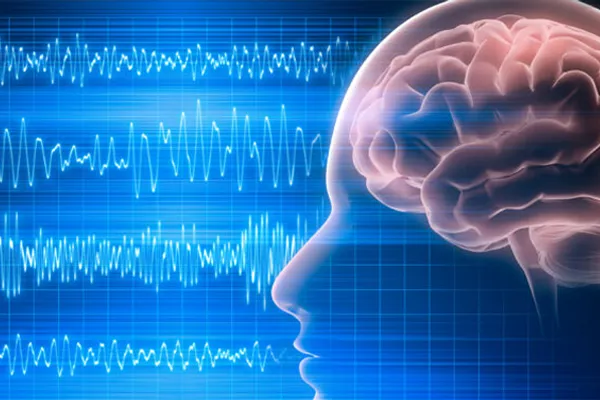Articles & Research

Mindfulness and relaxation techniques boost frontal theta power in the brains of athletes
In new research published in Psychology of Sport and Exercise, scientists observed higher frontal theta power in the brains of athletes during both mindfulness and relaxation inductions, suggesting that attention control may be associated with the decreased anxiety and negative affect that result from these interventions. The findings provide insights into how mindfulness and relaxation interventions can benefit athletes’ mental well-being.
Previous studies have shown that athletes often experience mental health problems due to various stressors such as overtraining, competition, injury, social expectations, and media pressure. These mental health problems can affect their performance and overall well-being. Therefore, the researchers wanted to explore early prevention interventions to reduce the risk of mental health problems in athletes and help them cope with the stress they face.
“As athletes encounter various stressors in their daily lives, such as intense training, competition, injury risks, rehabilitation, external expectations from parents, coaches, teammates, friends, and the influence of social media and scholarships, it becomes crucial for sport psychologists to determine the most effective psychological intervention for athletes facing mental health challenges stemming from these stressors,” said study author Yu-Kai Chang, research chair professor at National Taiwan Normal University and director of the Physical Activity and Cognitive Neuroscience Laboratory:
“Consequently, our study aimed to compare the immediate effects of a single session of mindfulness and relaxation practices on anxiety, affect, and brain activation. The objective was to offer recommendations to athletes regarding the utilization of these psychological interventions.”
The researchers recruited 35 athletes from two universities in Taiwan who were competing at a high level. These athletes had no prior experience with mindfulness or relaxation techniques. The participants were asked to complete a questionnaire about their anxiety levels before and after each intervention.
The first intervention was mindfulness induction (MI). This involved the athletes focusing their attention on the present moment without judgment. The second intervention was relaxation induction (RI), where the athletes were guided through relaxation techniques to help reduce their stress levels. There was also a control condition where the athletes simply rested without any specific intervention.
To measure brain activity, the researchers used a technique called electroencephalography (EEG). This involved placing sensors on the athletes’ scalps to record their brain waves. The researchers focused on specific brain wave frequencies, namely theta (reflecting cognitive control) and alpha (reflecting a relaxed state).
The athletes went through the MI, RI, and control conditions, and their brain activity was recorded using EEG. The researchers then analyzed the EEG data to see if there were any differences in brain activation patterns between the interventions. They also analyzed the questionnaire responses to see if there were changes in anxiety levels after each intervention.
The researchers found that both MI and RI significantly reduced negative mood states, such as anxiety and negative affect, compared to a control condition. Participants also exhibited higher frontal theta power (a brain wave pattern associated with attention control) during both MI and RI compared to the control condition. These findings suggest that the decreased anxiety and negative mood experienced during MI and RI may be related to improved attention control.
“Brief mindfulness, as well as relaxation, have the potential to decrease state anxiety and negative emotions while also increasing frontal theta power during mindfulness and relaxation practices,” Chang told PsyPost.
“It’s important to emphasize that the positive effects of brief mindfulness and relaxation on anxiety reduction are not limited to athletes; they can extend to the general population. This is particularly relevant in today’s world, where mental health issues like depression, anxiety, and other psychological disorders are on the rise. If a single session of psychological intervention can effectively address these challenges, it would greatly benefit individuals grappling with mental health problems.”
While both MI and RI were effective in managing negative mental states, there was no difference in positive emotional states among the three conditions. The lack of significant changes in positive affect could be due to the relatively short duration of the interventions. Additionally, athletes in this study already had higher baseline levels of positive affect compared to non-athlete populations, suggesting a possible ceiling effect.
“Regardless of whether one engages in mindfulness practice or relaxation practice, both involve dedicating 30 minutes to focusing on inner experiences or events,” Chang noted. “It is important to note that engaging in either practice can result in significant improvements in negative mental states, compared to doing nothing at all.”
The researchers said that further research should explore the specific mechanisms and long-term effects of these interventions on athletes’ mental well-being.
“There are several limitations in this study that leading the result of interpretation should be cautious,” Chang explained. “One is that participants in this study are novices in mindfulness or relaxation practices, they may still have difficulty handling the essential aspects of both practices, even though there are audio recordings providing instructions.
“Given that, we suggest that future studies should compare long-term effect of mindfulness and relaxation on anxiety, affect and brain activation, to examine the role of proficiency in psychological intervention.”
“Our findings suggest that both mindfulness and relaxation techniques can be beneficial for athletes and individuals without regular training experience in these interventions,” Chang added. “However, it is worth noting that a body of research indicates that individuals can experience even greater benefits by engaging in regular practice of mindfulness-based interventions and relaxation techniques.”
The study, “Effect of brief mindfulness and relaxation inductions on anxiety, affect and brain activation in athletes“, was authored by Jui-Ti Nien, Diane L. Gill, Ting-Yin Chou, Chen-Shuo Liu, Xiaoling Geng, Tsung-Min Hung, and Yu-Kai Chang.

